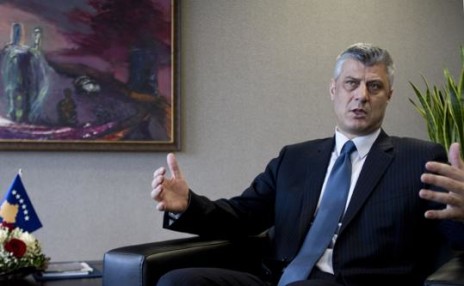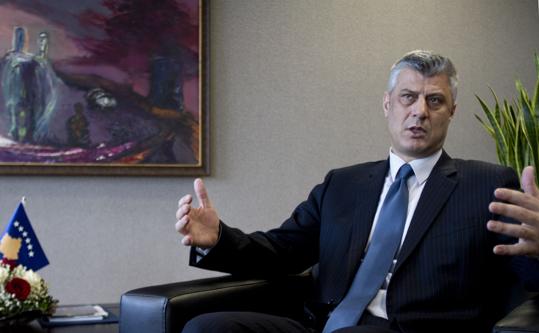
By Nebi Qena
Fifteen years ago, Hashim Thaci and Ivica Dacic were locked in an armed battle over the future of Kosova: one as the leader of ethnic Albanian rebels fighting Serbia, the other as a close ally of Serbian strongman Slobodan Milosevic.
On Thursday, the two will meet in Brussels as the prime ministers of Kosova and Serbia, highlighting the thawing relations between the former bitter foes.
Despite some sabre-rattling before the meeting, Kosova and Serbia have engaged in an EU-mediated process that has brought the two sides closer than ever to some sort of agreement regulating their relations.
Kosova was once a province of Serbia but declared independence in 2008, a development that Serbia has said it will never accept. NATO intervened in 1999 with a bombing campaign to stop Serb-led Yugoslavia from attacking civilians and rebels in Kosova.
The two leaders will for the first time deal directly with the thorny issue of Kosova’s Serb-run northern section, which defies the ethnic Albanian-dominated authorities in Prishtina and wants to be back as part of Serbia.
The area is controlled by proxies of Serbia’s security network, which the Kosova government wants to see dismantled before making any concessions.
“It is the first serious step that we discuss sensitive issues,” Thaci said. “Mr. Dacic will take the responsibility for dismantling parallel security structures, while I will make my offer for the Serbs in the north.”
Thaci has sought to ease the fears of Kosova’s Serb minority, saying that his government in Prishtina “does not want to impose things” over the Serb north and that a separate municipality would be set up with elected Serb leaders and a fund to ramp up development.
However, he firmly ruled out granting autonomy to the north in exchange for Serbia’s support in getting a UN seat, as suggested by Dacic.
“There will be no partition, no autonomy, no special status,” Thaci said.
Thaci welcomed Serbia’s “change of attitude” but insisted that Kosova’s membership in the UN “is not up to the will” of the Serbian government in Belgrade.
Kosova’s independence is recognized by 96 countries, including most EU countries and the United States, but is strongly rejected by Serbia. Membership in the UN will be a complex issue for Kosova since Russia, which has veto power in the UN Security Council, backs Serbia.
But Thaci voiced hope that negotiating a peace treaty between the two former foes could remove that obstacle.
“There will be no reason for Russia to obstruct Kosova when Kosova and Serbia recognize each other,” Thaci said.
In Belgrade, top leaders appeared to differ on how far Serbia would go in talks with Kosova. Nationalist president Tomislav Nikolic ruled out the possibility that Belgrade could ever agree to its former province getting a UN seat.
“It is really impossible that Serbia would give up a large part of its territory and say it can be a member of the United Nations,” he said.
Dacic said Wednesday that “Serbia is suggesting that an overall and sustainable solution be found.”
“We are open for all possibilities, to solve everything in full and then we can talk about anything,” he added. “But if there isn’t a solution that completely removes all problems, then no partial solution is acceptable, because the issue of membership in the United Nations is at the very core of the problem.”
Despite Serbia’s blockade of Kosova’s membership in international organizations, the country has joined the International Monetary Fund and most recently the European Bank for Reconstruction and Development. Both moves should unlock much-needed funds for Kosova’s weak economy.
But tensions still linger in the region. Just hours before Thaci left for Brussels, some 2,000 ethnic Albanians took to the streets of Prishtina to show support for their ethnic kin in south Serbia, where a monument to ethnic Albanian rebels killed in 2000 has sparked anger. The Serbian government in Belgrade has said the monument will be taken down by force.
“Belgrade also must be very careful in its actions,” Thaci cautioned. “It is Belgrade’s obligation to sit down and talk.”
